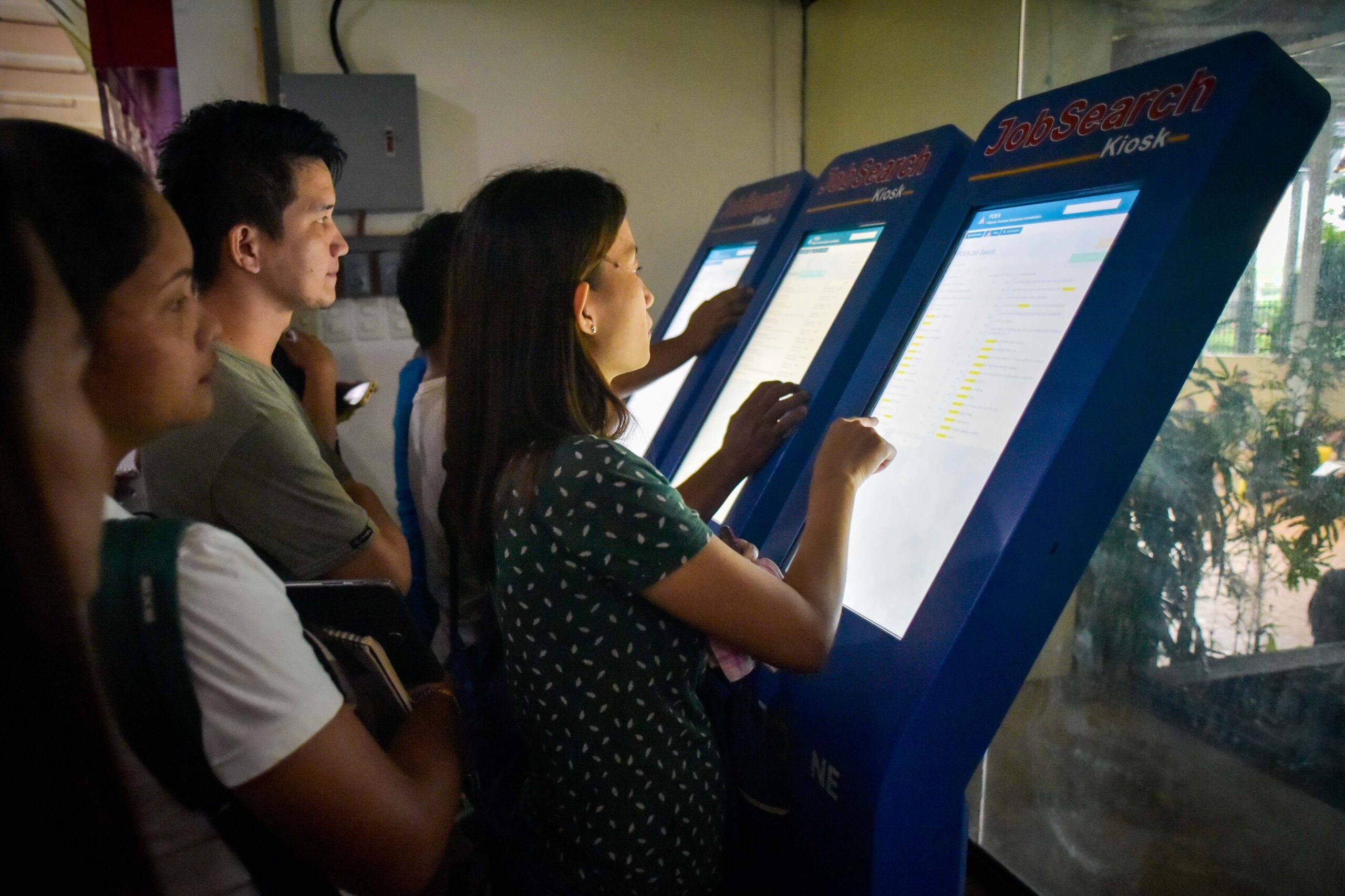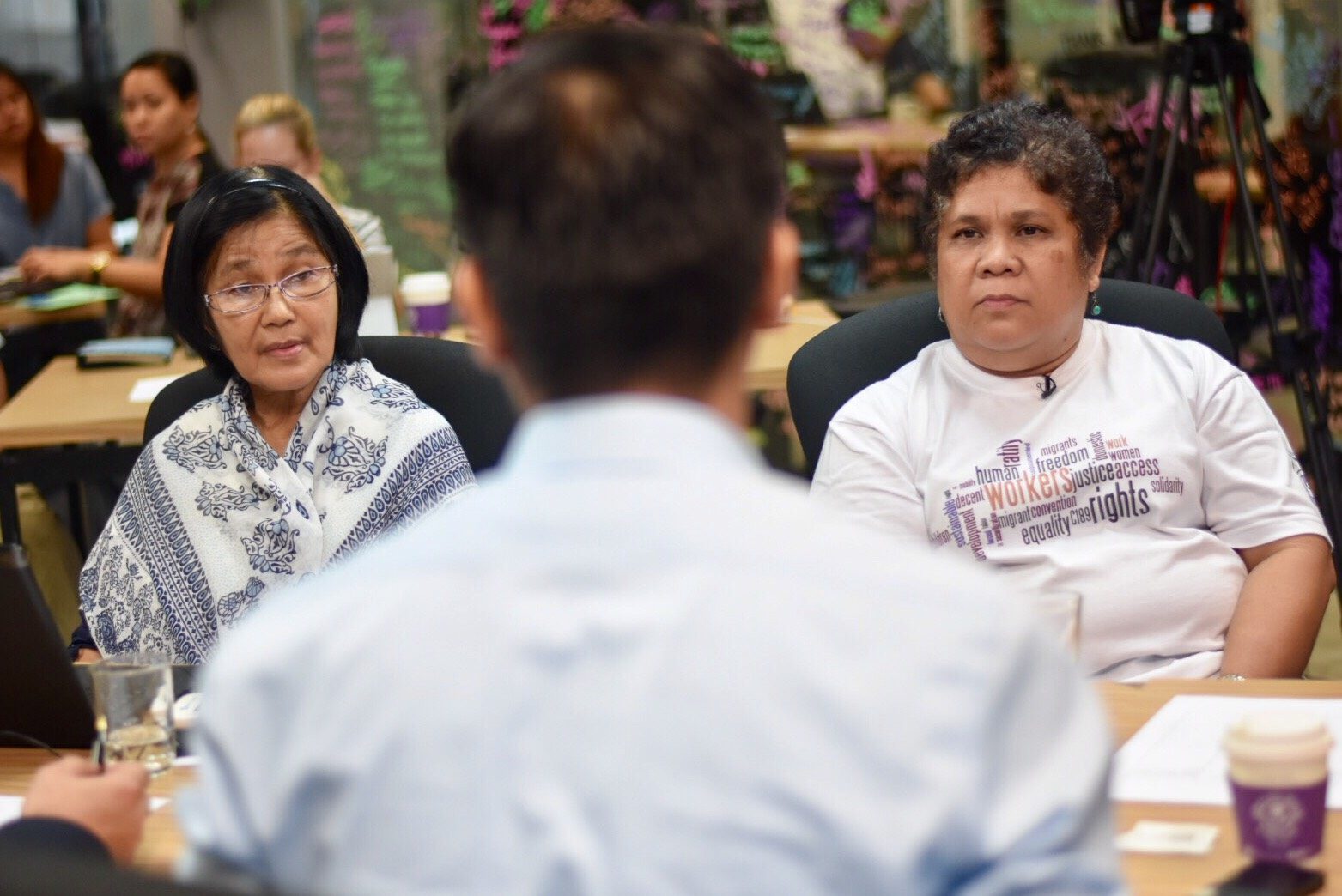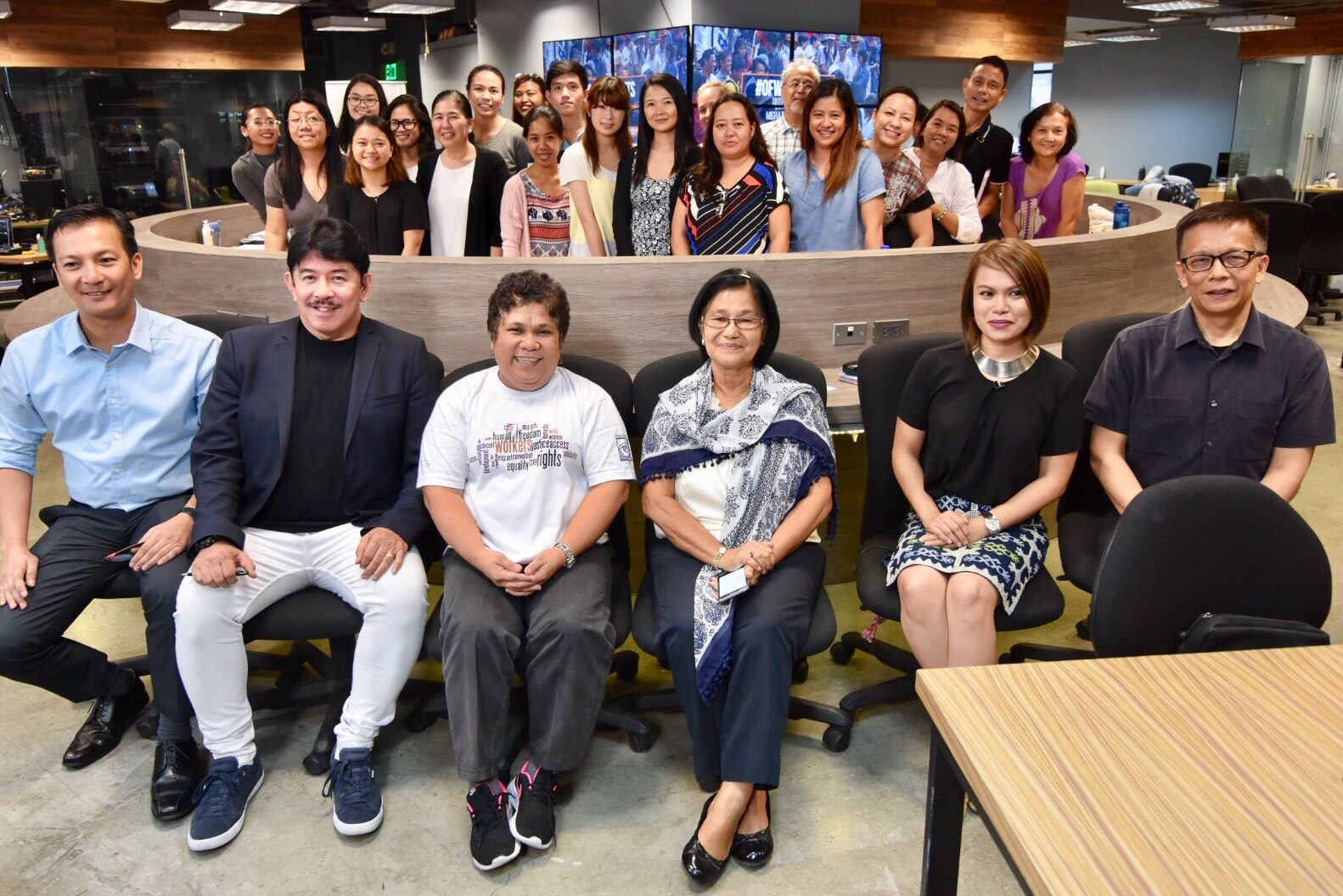SUMMARY
This is AI generated summarization, which may have errors. For context, always refer to the full article.

MANILA, Philippines – Integrate the repatriation of oveseas Filipino workers (OFWs) with the country’s economic plans.
Labor officials and advocates aired this sentiment on Friday, September 1, during a roundtable discussion that tackled issues affecting OFWs, as well as President Rodrigo Duterte’s migration policy. (READ: How can we ensure onsite protection for OFWs?)
“Reintegration should not be taken in a vacuum or in isolation, but should be plugged into national economic strategies,” said Hans Cacdac, Administrator of the Overseas Workers Welfare Administration (OWWA).
In the 2016 elections, Duterte received overwhelming support from OFWs – majority of whom voted for him on his promise to make working abroad an option instead of a necessity.
During the discussion, panelists pointed out that a driving force of OFWs’ migration is the continued lack of decent job opportunites in the Philippines. Aligning the country’s economic plans with the repatration of OFWs may be one way to give returning Filipinos a viable option to return and stay home. (READ: How Duterte gov’t plans to bring OFWs back home)
Levinson Alcantara, Director of the Philippine Overseas Employment Administration (POEA), echoed this and shared that addressing the migration of Filipino workers is included in the Philippine Development Plan (PDP) 2017-2022 of the National Economic and Development Authority (NEDA). This plan aims to generate some 10 million jobs by the end of Duterte’s term in 2022.
“Migration and development, pre-deployment and on-site protection, return [of OFWs] – these things are [in] the medium term of [PDP 2017-2022] and it is a sign that we are gearing towards not only temporary labor migration but plotting actually our [country’s] development and maximizing the benefits of labor migration to feed it into the national mainstream of development,” said Alcantara.

Translating proposals into action
While the creation of decent and sustainable job opportunities is necessary in keeping returning OFWs home, Maria Angela Villalba, executive director of Unlad Kabayan, said these proposals must be translated into action.
“At a policy level and at the level of national bodies, the programs and proposals are good. The question is, how is this translated to the families of migrant workers on a very practical level, to those who are really on the ground?” Villalba said in a mix of English and Filipino.
Ellene Sana, exectuive director of the Center for Migrant Advocacy (CMA), also said that while the issue of creating stable and decent work for Filipinos at home is not new, it remains essential to ensuring that migration becomes a choice for Filipinos, instead of a necessity
“We always ask the question: Ano ba ‘yung long-term solution? Kasi ang gusto natin, may option ang manggagawa natin, to stay [in the Philippines] or to go abroad,” said Sana.
(We always ask the question: What is the long-term solution? Because what we want is for workers to have the option to stay in the Philippines or to go abroad.)
She added: “Inadmit naman ng ating gobyerno kaya nasa point number 4 ng 8-point agenda ni [Labor] Secretary [Silvestre] Bello – to create these job opportunities in the country so that migration will not be out of compulsion. Sinabi na rin ‘yan ng mga previous administration but I think it’s very serious. So we do not say ‘stop migration,’ pero bigyan mo ng option na dito ang disenteng trabaho para sa mga kalalakihan at kababaihan.”
(The government admitted this, that’s why it’s point number 4 of the 8-point agenda of Secretary Bello – to create these job opportunities in the country so that migration will not be out of compulsion. Previous administrations have also acknowledged that but I think it’s very serious. So we do not say “stop migration,” but provide an option that men and women can have decent work here.)
Villalba also pointed out that concrete actions must be spelled out. “If we don’t talk about the basics and nitty gritty, we will just be talking and saying, ‘Come home Filipinos from abroad,’ without much to offer even at the policy level and strategies.”
Lack of access
Also part of the problem is OFWs’ lack of access to government support when they start new jobs.
“We have had migrant workers – groups of migrant workers who have come home and started their own businesses… These businesses have been sustainable: an integrated farm, investments in a rice mill, etc, and it’s very sad to say that they’ve been applying for support from OWWA and until now, they haven’t received support. This has been going on for years, they already went through two OWWA heads,” said Villalba in a mix of English and Filipino.
Cacdac also said that the government’s reintegration programs should be connected to employment-generating activities for returning OFWs and that these should be aligned with the interests of various government agencies.
“We will have to make sure that all the businesses that are in the menu of options for our workers are aligned with the Department of Trade and Industry, the Department of Agriculture, NEDA, and the Department of Labor and Employment, and are those where the chances of success in reintegrating workers are very high,” Cacdac said.
“We will not encourage an OFW who comes home to get into a business that will not be successful in the local or international market anyway,” he added.

‘Change the narrative’
Sana and Villalba also proposed that a change in the narrative of labor migration can help OFWs empower themselves to not only return home, but also actively protect their rights and interests.
“We need to change the narrative of labor migration. It can’t always be the perspective that, ‘We’re unfortunate, there is no work and so we have to leave.’ I think we need to hear more employers saying, ‘We value the work of Filipino migrants.’ Engineer or domestic worker, they are doing important work,” Sana said in a mix of English and Filipino.
Villalba added, “Hindi lang sila victims (They’re not just victims) and they’re not just clients but they should be empowered to be part of the planning, part of the implementation of all this.”
#OFWRights: Duterte’s Migration Policy was a roundtable discussion organized by Rappler, the Center for Migrant Advocacy, and the Working Group on Migration from the Department of Political Science at the Ateneo de Manila University.
Hosted by freelance journalist Ana Santos, the panel discussion tackled issues affecting OFWs including streamlining government offices, expansion of benefits, long-term solutions, and onsite protection. – Rappler.com
Add a comment
How does this make you feel?
There are no comments yet. Add your comment to start the conversation.